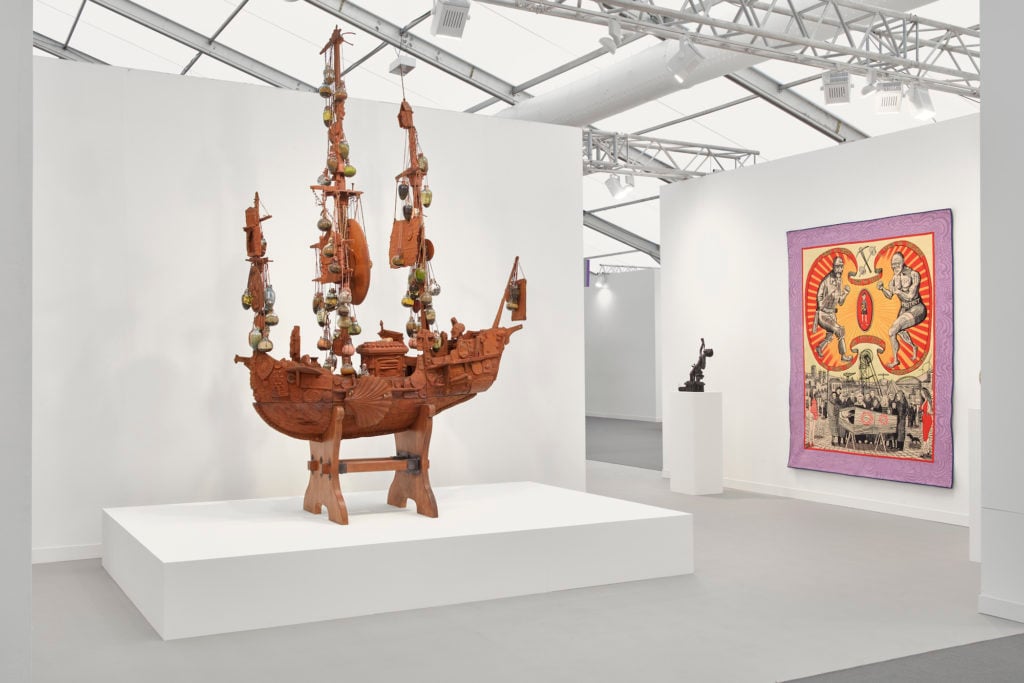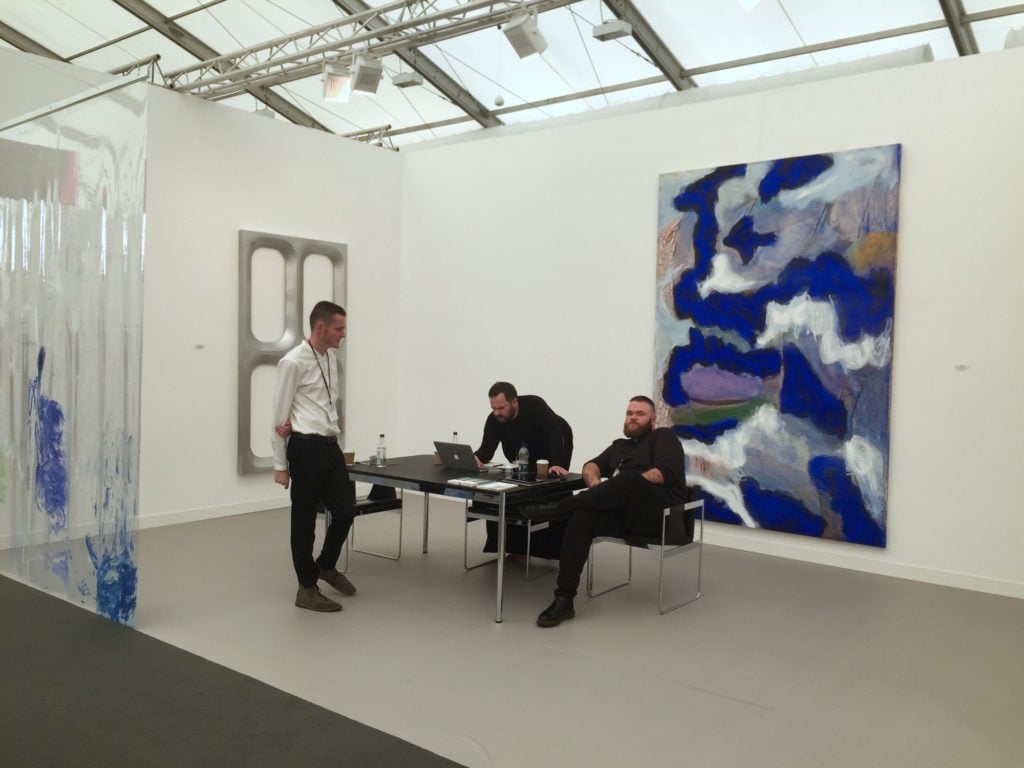Art World
Frieze Tate Fund Announces 2016 Acquisitions
The fund helps London's Tate acquire art from Frieze.

The fund helps London's Tate acquire art from Frieze.

Henri Neuendorf

The 2016 Frieze Tate Fund revealed a list of 10 artworks selected for acquisition on behalf of the London-based museum.
Established in 2003 as a philanthropic organization to support the Tate, participating galleries, and artists, it was the first acquisition fund associated with an art fair. It has so far bestowed over 100 works shown at Frieze to the Tate museums.
Frieze director Victoria Siddall said “It is very meaningful for galleries and artists when works are purchased by Tate for the national collection, so I am thrilled that the Frieze Tate Fund returns this year, thanks to WME | IMG.”
Part of talent management agency, WME | IMG’s undisclosed investment into Frieze this April, the Hollywood firm provided jurors with £150,000 ($191,000) to cherry-pick works for the Tate from fair exhibitors.

View of the Peres Projects booth at Frieze London 2016, with works by Donna Huanca and Blair Thurman. Photo Lorena Muñoz-Alonso.
The six-person international jury, composed of four Tate curators and two guest curators, selected six artworks by the Turkish artist Hüseyin Bahri Alptekin, acquired from Rampa, Istanbul; three artworks by Portuguese artist Leonor Antunes, acquired from Galeria Luisa Strina, São Paulo; and one work by the Malaysian artist Phillip Lai, acquired from Stuart Shave/Modern Art, London.
This year’s jury included guest curators Jarosław Suchan, director, Muzeum Sztuki, Lodz; and María Inés Rodríguez, director, CAPC (Contemporary Art Museum), Bordeaux; working alongside Tate curators Clara Kim, The Daskalopoulos senior curator, international art (Africa, Asia & Middle East); Clarrie Wallis, senior curator of contemporary British art; Hannah Johnston, assistant curator, international art; and Elsa Coustou, assistant curator, contemporary British art.
“We would like to thank both WME | IMG and Frieze for their support for the Fund this year,” Tate director Nicholas Serota said in a statement. “In making the selections of art works we have been able to acquire, we are particularly grateful to the galleries and the artists who have been so generous in helping to make it possible for works of this caliber to enter a public collection.”